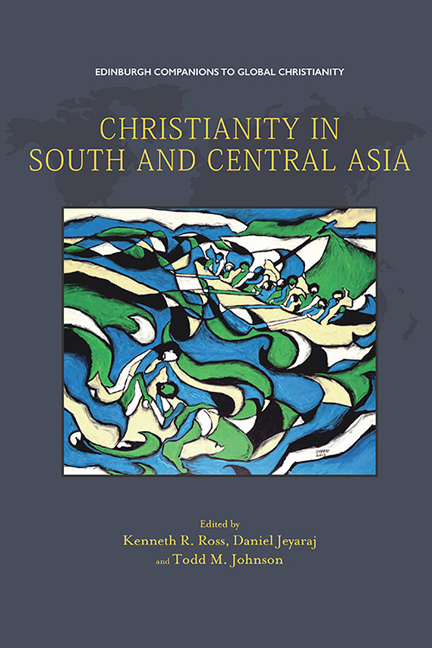Kazakhstan
Published online by Cambridge University Press: 30 April 2020
Summary
Not many people in the West have visited or even heard much about this Central Asian country; the Russian-leased Baikonur Cosmodrome spaceport may well be the most prominent attribute of the Kazakhstani state. Yet, apart from it being the ninth-largest country in the world, Kazakhstan is a country full of interest, not least because of its crisscrossing cultures, with more than 100 ethnicities, and its religious diversity. The latter, being especially characteristic of Kazakhstan, can be traced back to its complex ethnic mix. Considering that Kazakhstan is a former atheist Soviet republic, the heterogeneity found in the country today is all the more intriguing. The 2009 national census (the latest available at the time of writing) reported that more than 26% of the population belonged to a Christian community. More than 20% belonged to the Eastern Orthodox tradition, followed by substantially smaller Roman Catholic and Protestant groups. The census data further revealed that ethnic groups residing in Kazakhstan predominantly identify themselves with their respective traditional religions. Christianity is represented mainly by Russians, Ukrainians, Germans and White Russians (Belarusans). Considering the above, inter-confessional and inter-ethnic harmony in the Republic of Kazakhstan is one of the essential conditions for the stability of the country.
Early Period of Christianity
In the nineteenth century, long after the majority of Kazakhs had converted to Islam, the Kazakh khanate was incorporated into the Russian Empire. At that time, the Russian Orthodox Church (ROC), being the state religion of tsarist Russia and a powerful institution, enjoyed significant advantages over other religions. With the expansion of military settlements, Russian Orthodoxy increasingly became widespread throughout the Kazakh country. Over the course of history Russian Orthodoxy has remained the second-largest traditional confession in Kazakhstan.
Similarly, Protestantism first arrived in Kazakhstan in the late nineteenth and early twentieth centuries, after its accession to Russia. During this period, military settlements brought Lutherans into the country – especially from among Germans. Baptists and Mennonites were also sent to the country and formed their own communities on the Kazakh territory. Furthermore, Protestant civilians settled in Kazakhstan, such as officials, handicraft workers and peasants from Sweden, Poland and Finland. Later, in the 1880s, migration movements from the European part of the Russian Empire intensified, bringing more Protestants such as Baptists, Adventists and Mennonites into the country.
- Type
- Chapter
- Information
- Christianity in South and Central Asia , pp. 43 - 51Publisher: Edinburgh University PressPrint publication year: 2019



